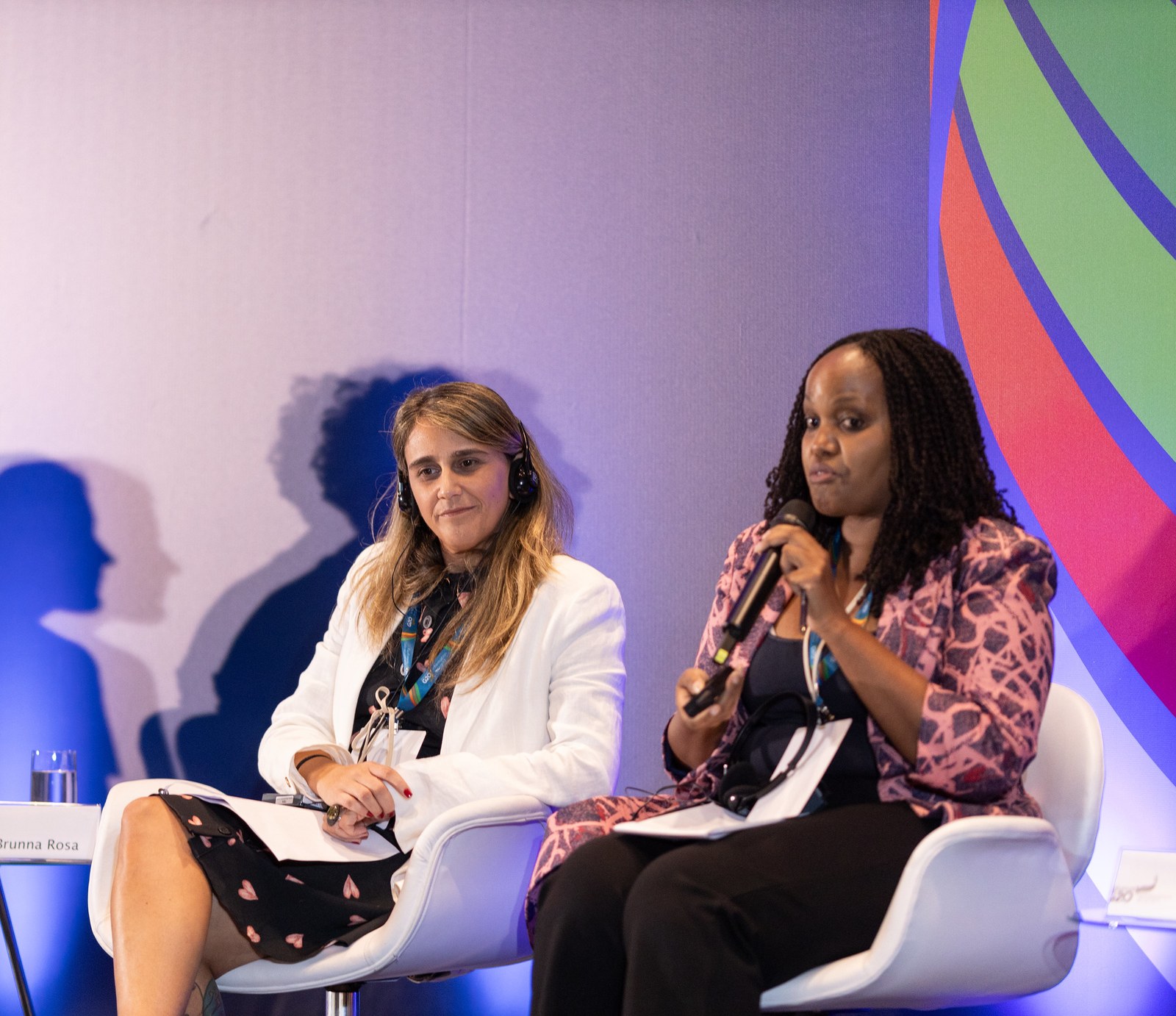Media education increases children's online protection
Children's safety on the internet and media education featured on a panel discussion at the G20 Digital Economy WG side event.

On the last day of the G20 side event on Information Integrity, the panel "Protecting children and adolescents online and media education initiatives" brought a debate about how to make the digital environment safer and more educational. Moderated by Brunna Rosa Alfaia, Secretary for Strategy and Networks at the Secretariat for Social Communication of the Presidency of the Republic, the event brought together experts in technology, education and child protection.
Alfaia opened the panel explaining that media education plays a fundamental role in offering tools to improve children's safety in the digital environment. "Brasil is leading a global movement that advocates for values such as respect and social inclusion, in order to confront the environment of hatred, violence, and extremism that plagues the world and finds fertile ground online," she said. She recalled that, since last year, the country has a Brazilian Digital Education Policy.
Jennifer Kaberi is the founder of Mtoto News, a digital company that is harnessing technology to improve the lives of children by including them in the process of creating content platforms. She is also an affiliate researcher at the Berkman Center for Internet and Society at Harvard University and investigates how to "reboot" social media, creating a digital environment where children can engage, create, and influence in a safe and fun environment.
Tanya Notley, a lecturer in the School of Humanities and Communication Arts and member of the Institute for Culture and Society at Western Sydney University, leads a national media literacy project for adults and collaborates with public cultural institutions to develop evidence-based interventions.
Roxana Morduchowicz, a UNESCO consultant, spoke about media education projects for a healthy growth. Emilio Puccio, Secretary General of the European Parliament's Intergroup for the Defense of Children's Rights, pointed out the regulatory initiatives and actions of governments in Europe. The panel was closed by Emma Leiken, Global Head of Youth Safety and Wellbeing Policy at TikTok, who presented the company's actions aimed at organizing young people and responsible technology.
The video recording of the discussion tables are available on the G20 YouTube channel.